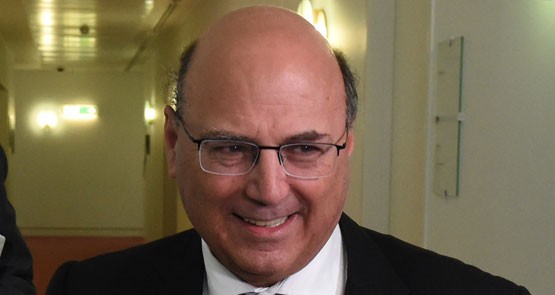
A corporate tax cut of the kind now being spruiked by the government would deliver a windfall to some of Australia’s biggest tax dodgers and undermine voter support for the tax system.
Yesterday, Cabinet Secretary Arthur Sinodinos was dispatched by the government to attempt to salvage something from the smoking ruins of the government’s tax reform process, and he seized on the one thing voters don’t want from tax reform: lower taxes for large companies.
Remember that this is the government that came into office declaring that there was a fiscal emergency that required tough decisions — and promptly gave billions in tax savings to large corporations by repealing the successful emissions trading scheme and the mining tax, before giving small business a tax cut as well. Now, it seems, it is keen to continue the favours by cutting taxes for large companies as well.
This, of course, is the agenda of the Business Council of Australia, which failed to convince the government to increase the GST to pay for a major company tax cut but which has kept up its endless parroting of the “need” — never backed by evidence from anywhere in the world — that lower company taxes are required to boost investment and economic growth.
Let’s have a look at the tax performance of the membership of the Business Council of Australia using the tax transparency data for 2013-14. Of the 133 member companies listed on the BCA website, around one-third paid no tax at all in 2013-14 — including global giants like Exxon, foreign banks like JP Morgan and Goldman Sachs, News Corp, Qantas and detention centre operator Transfield. A further 34 companies paid 2% or less of their total income in tax. The average tax paid by BCA members as a proportion of their total income was 3.5% — primarily thanks to the big four banks, who all pay substantially higher company tax receipts on their income than most other firms. As a proportion of taxable income, BCA members — around 40% of whom are foreign-owned — pay an average of just over 24%.
These are the companies that stand to gain from a company tax cut — firms already paying, usually, well below 30%, and in many cases a minuscule fraction of their Australian earnings.
There’s another number worth noting, too: 59%. That’s the proportion of voters who nominate “the feeling that some corporations don’t pay their fair share” as the thing about the tax system that most bothers them. It’s even higher than the proportion who nominate the feeling that high-income earners don’t pay their fair share (54%). In comparison, the actual level of tax paid by taxpayers is only nominated by 23% of voters as bothering them a lot.
Coincidentally, 58% of voters believe that the purpose of tax reform is “to address the budget deficit”, which has been explicitly ruled out as the purpose of tax reform by Treasurer Scott Morrison.
So in arguing for lower company taxes, not merely will the government be putting forward something at odds with voters’ understanding of what the point of tax reform actually is, it will be putting forward something that will worsen the issue that voters find most irksome about the current tax system.
There’s more than just a political risk to this: make the tax system — in the eyes of voters, whether true or not — less fair and more irksome to voters, and you run the serious risk of undermining voter support for the Australian tax system. That’s likely to lead to greater reluctance to comply and more support for tax avoidance and outright tax evasion. The tax system needs a social licence to operate effectively. Handing out tax cuts to multinationals who already pay far below the statutory rate on the revenue they get in Australia will help undermine that social licence — if the government actually cares.








With ya Bernie! (Is it OK if I call you “Bernie”?).
Cheers, Alex (Al).
Really? Sinodinos? This would be the guy who now has no credibility as either a business leader or even an honest person after his performance at ICAC (and AWH).
Has Turnbull no idea anymore of the stench surrounding the PM’s office?
And to roll him out to try to convince us that tax relief for a bunch of multinationals who are for the most part already tax-free is good for workers?
Well … good luck with that.
Bernard
What they should be doing is knocking off Dividend Imputation which costs the budget $20 billion and then split the $20 billion between personal income tax payers at the lower end of the scale ($10 Billion)
and a Company tax rate cut to 25% ( also about $10 bilion)
The only losers would be old rich people and god knows its high they paid some tax
Regards, Rex Bevan
The appearance of Sinodinos on Insiders yesterday to talk up the alleged benefits of cutting corporate tax confirmed the worst suspicions about this government. The Coalition seeks only to have power, and then to use that power for the benefit of its supporters.
Further support for this hypothesis is found in the policy vacuum of the past six months, and the constant reiteration of the term “reform” when in fact they mean “change”. The two words are not synonymous.
If the Coalition win this election, then their post election Budget will make the 2014 version look benign by comparison.
And that is without even starting on the disastrous foreign policy lines being pursued, which Crikey really needs to look at.
“The Fellowship of the Ring” – the more tax they can dodge, the more they have left to donate to their party, so they can get elected, to give more cuts.
[Sinodinos – Honest John Howard’s “moral navigator” from ’97 to ’06 (“Iraq”, “Children Overboard” and all those other standouts).]